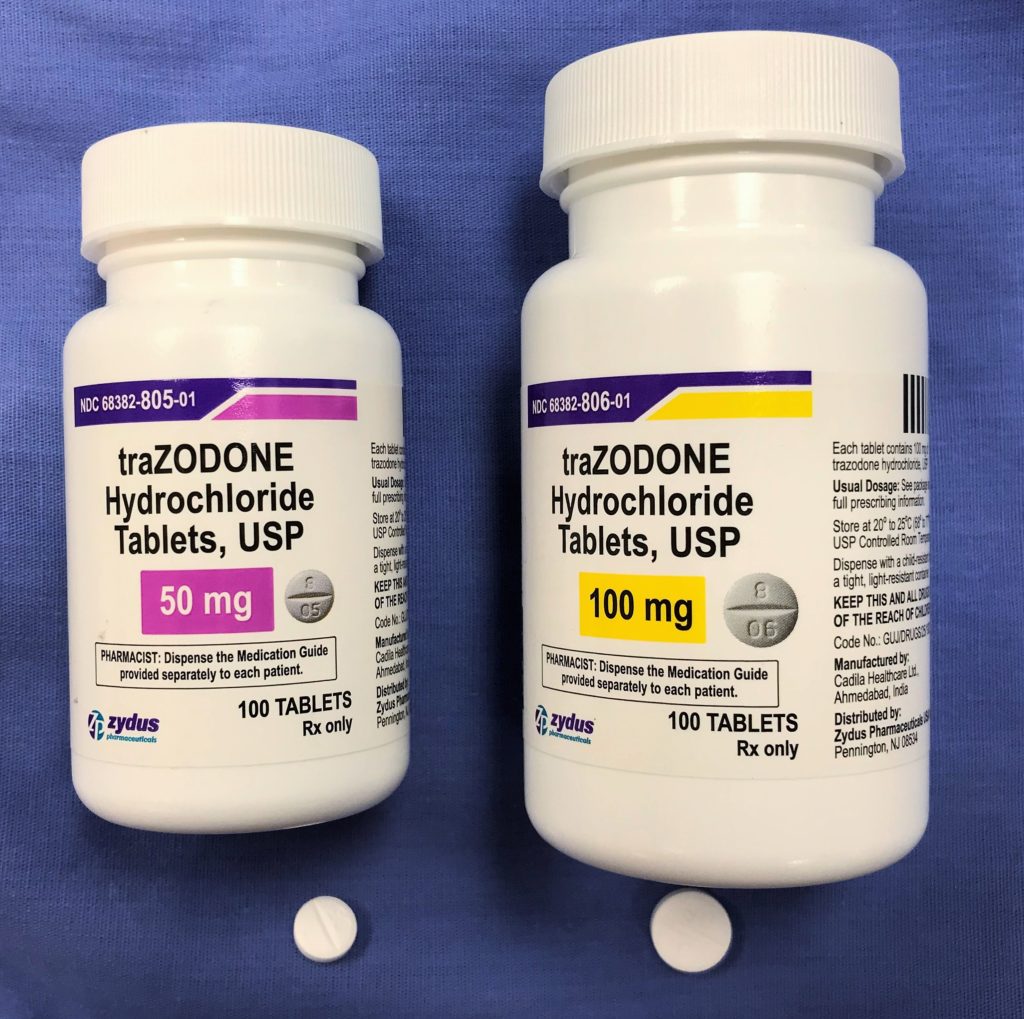Trazadone is a serotonin antagonist/reuptake inhibator that veterinarians prescribe for behavior problems in dogs. It is actually an antidepressant that works well for dogs with anxiety or fear issues especially when combined with other anti-anxiety medications such as amitriptyline. It is also used to calm dogs during hospital stays and surgical procedures. Trazadone has less effect on the cardiovascular system than acepromazine which is another common tranquilizer in veterinary medicine. Please remember trazadone (triazolopyridine) is not the same medication as tramadol (Desyrel) which is used for pain relief. Like all medications, trazadone may have serious side effects when used improperly. Always speak with your veterinarian before using trazadone or any other drugs in your pet. Do not use trazadone in cats!

How does trazadone work? Trazadone is a serotonin antagonist/re-uptake inhibitor. That means it prolongs or potentiates the natural effect of serotonin in the central nervous system. At the right dose, most dogs will calm down and be less anxious about their surroundings. If given too much, it can cause profound lethargy, vomiting, problems walking, heart rhythm problems and serotonin syndrome. More information on this syndrome can be found below. Use caution on the first dose as some dogs have a paradoxical effect which means trazadone makes them more anxious or even aggressive. Also, be very careful in dogs with heart, liver or kidney issues.
Trazadone interacts with many other drugs which is why you should always consult with a veterinarian before using this drug. Here’s a list: 1) MAO inhibitors – do not use with any MAO inhibitors including amitraz and selegeline. 2) Anti-hypertensive drugs as it may cause the dog’s blood pressure to plummet. 3) Aspirin and other non-steroidal anti-inflammatory medications including carprofen (Rimadyl) as increases the risk of gastrointestinal bleeding. 4) Anti-fungal medications such as fluconazole which is commonly used to treat Valley Fever. The ‘zoles’ increase blood levels of trazadone. 5) Metoclopramide may increase the risk of serotonin syndrome. 6) Fluoxetine and other antidepressants that can also increase the risk of serotonin syndrome.
Sources: